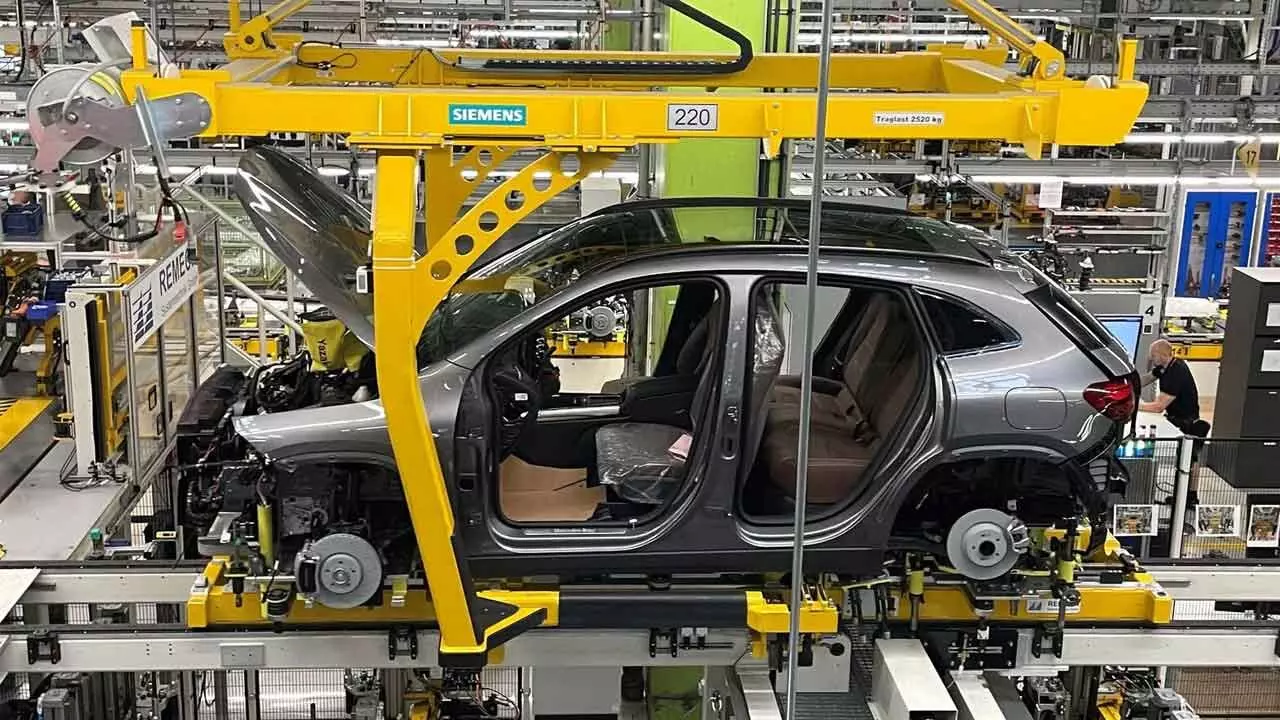India's Auto Industry Gears Up for Homegrown Magnet Production Amidst China's Supply Clampdown
India's auto industry is planning domestic rare earth magnet production to counter supply crunch from China. Discover how companies like Midwest Advanced Materials, Entellus, and IREL are stepping up to build local supply chains and reduce reliance on imports.
India's Auto Industry Gears Up for Homegrown Magnet Production Amidst China's Supply Clampdown

The Indian automotive industry is facing an unexpected roadblock: a tightening squeeze on the supply of critical magnets, primarily from China. This challenge, stemming from recent restrictions imposed by Beijing, has galvanized a consortium of Indian companies, including several advanced material entities, to forge ambitious plans for establishing robust domestic supply chains. The goal is clear: to drastically reduce the nation's reliance on Chinese imports and bolster self-sufficiency in this vital sector.
Sources close to the matter reveal that these forward-thinking companies have already presented their detailed strategies to the Indian government, including the Ministry of Heavy Industries. Their assurances revolve around a commitment to build in-house production capabilities for these essential magnets, a move that could fundamentally reshape the industry's landscape. Among the prominent players leading this charge are Midwest Advanced Materials, Entellus Industries, and the public sector giant, Indian Rare Earths (IREL).
Heavy Industries Secretary Kamran Rizvi has reportedly been at the forefront of these discussions, actively engaging with company presentations as the government meticulously crafts its strategies for developing indigenous magnet production. This concerted effort underscores the strategic importance of rare earth magnets, which are indispensable components in a wide array of automotive applications, from sophisticated speedometers and electric motors to e-axles, electric water pumps, automatic transmission kits, speakers, sensors, and ignition coils.
Domestic Ambitions Take Shape
Midwest Advanced Materials has laid out an impressive blueprint for its rare earth magnet production facility in India. Their plans detail a robust capacity of 500 tonnes per annum, with a confident forecast that custom-made rare earth magnets will be available for the industry by the close of 2026. This move is particularly significant as India seeks to foster domestic manufacturing capabilities across high-tech sectors.
Entellus Industries, a UK-headquartered firm with substantial operations in India, also shared its vision with government officials. While their plant is already equipped to produce magnetic powder, they acknowledge that bringing industry-grade magnets to market will require additional time. This indicates a phased approach, focusing first on raw material processing before moving to the finished product.
Adding a crucial public sector dimension to these efforts, IREL, a long-standing entity in India's rare earth landscape, has informed the government of its potential to match China's competitive rates once their production commences. However, a candid assessment from the company highlighted a significant geological reality: the rare earth ore reserves in India are considerably less abundant—a hundred times less, in fact—than those found in China, the US, and Australia. This underscores the need for strategic resource management and potentially, international collaborations for raw material sourcing.
The companies collectively pointed out a historical challenge: India's magnet production largely ceased over the past two decades due to the overwhelming influx of cheaper Chinese supplies. This market dynamic had previously disincentivized domestic manufacturing. Now, industry members are actively seeking government support, including incentives and monetary benefits, to revive and strengthen local magnet production.
Secretary Rizvi, while keen on promoting indigenous capabilities, emphasized the need for "realistic statements about magnet production." He cautioned that inaccurate assessments could severely impact potential customers in the automotive sector, whose production lines are heavily reliant on timely and consistent supplies. Echoing this sentiment, the auto industry itself has appealed to potential local producers for firm timelines on deliveries, stressing the critical nature of quick procurement for their complex manufacturing processes.
China's Grip and India's Pushback
The urgency behind these domestic initiatives stems from a deteriorating situation over the past few months. Despite persistent efforts and interventions from Indian officials, no Indian auto component or vehicle company has yet secured approval from the Chinese government for procuring rare earth magnets. Adding to the uncertainty, there's been "no clarity as yet" on any timeline for a confirmed meeting with Chinese government representatives, leaving Indian manufacturers in a precarious position.
Applications for sourcing these crucial magnets have primarily been filed by parts manufacturers who supply fully-built, sophisticated component assemblies to vehicle makers. The components affected range widely, impacting everything from engine ignition coils to the increasingly prevalent electric motors and e-axles found in modern vehicles, including Electric Vehicles (EVs).
The push for a resolution with Chinese authorities isn't limited to individual companies. Leading industry bodies, including the Auto Component Manufacturers Association (ACMA) and the Society of Indian Automobile Manufacturers (SIAM), are actively pursuing a meeting with Chinese representatives. These efforts are further being facilitated by officials across key ministries, highlighting the national significance of this supply chain challenge.
As India navigates this critical juncture, the concerted efforts to cultivate a self-reliant magnet supply chain reflect a broader strategic imperative: safeguarding the future of its rapidly growing automotive industry and ensuring its resilience against global supply shocks. The coming months will be crucial in determining how swiftly India can pivot from dependence to independent strength in this vital technological domain.

